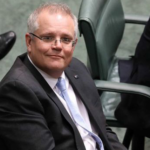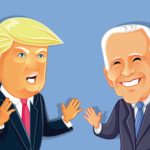Morrison’s Voter Suppression Laws Will Provoke US-Style Electoral Paranoia

Over recent months, the increasingly Trumpian Morrison government has introduced a suite of laws relating to partaking and voting in federal elections that not only stink of desperation, but they appear as a solution to electoral issues imported from the United States.
Introduced last month, the latest and yet-to-be-passed bill contains laws requiring voters to present photo ID at the ballot box, which is a measure that will serve to suppress the vote of some of society’s most vulnerable individuals, especially First Nations peoples.
The explanatory memorandum for the so-called Voter Integrity Bill contains lines like the new requirement “will improve public confidence about the integrity of ballot-issuing practices”, as well as “reduce the risk of electoral fraud” and “inadvertent mistakes”.
However, these concepts aren’t an apparent concern within this country’s electoral system, rather they’re being subtly manufactured via their inference. And the Coalition has sought to remedy a number of other non-existent problems via a range of laws passed in August.
Taken together these measures are a further assault on our liberal democracy, as they target one of the most fundamental aspects of it. And this latest set of measures will certainly see the votes suppressed of many of those whose circumstances have left them with no photo identification.
Disenfranchising voters
“All the laws passed over the past two decades have been designed to give more power to politicians, police and security services to rule over citizens,” said Civil Liberties Australia (CLA) president Bill Rowlings. “That’s what the voter ID laws also do.”
“The core problem is that the voter ID laws restrict existing rights and make it harder for individual Australians to be involved in democracy, including the fundamental question of being able to vote as simply and easily as possible,” he told Sydney Criminal Lawyers.
“These voter ID laws are not needed: where is the evidence they are?”
The government has based its “acceptable identification documentation” law on a recommendation from a Joint Standing Committee on Electoral Matters report into the 2019 election, which contains the Australian Electoral Commission’s assessment of voter fraud during the last national vote.
The AEC found that the rate of multiple voting for the House of Representatives was at 0.03 percent in 2019, which would account for about 490 votes all up. And the commission stated that this “very small problem” was usually associated with mental health issues.
“Australia has no voter ID problem, never has had,” Rowlings added, “so the proposed laws are clearly aimed at mirroring the crazy voting restrictions in the USA, designed to minimise the vote of black people and other minorities.”
Suppressing opposition
A great swag of questionable electoral laws was rushed through at the end of August. The most controversial was a bill that increased the number of members that a minor party currently holding no seats in parliament must have to register for and contest the next election from 500 to 1,500.
“This is a real doozy,” Senator Larissa Waters said in parliament as the bill went to vote. “The two big parties, which see their vote at record low levels – with a very large crossbench – want to deter competition for votes, so it’s very convenient for them to bring forward a bill such as this.”
The Electoral Offences and Preventing Multiple Voting Bill amended the Commonwealth Electoral Act 1918 (Cth) so the commissioner can declare a person reasonably suspected of voting multiple times a designated elector who then must vote using measures that apply to postal votes.
The bill also increased the penalty that applies to the offence of interfering with the political liberty of another, under section 327 of the Electoral Act, to 3 years imprisonment and/or a $222,000 fine. Yet, there’s no evidence that there was a need for this increase to deter this coercive behaviour.
“The provisions of those bills will benefit and help shore up the flailing support for those two big parties,” Waters added. “There is no evidence to suggest that voter fraud is an issue in Australia.”
And to ensure US paranoia around voting in elections becomes an Australian trait the recently introduced Assurance of Senate Counting Bill requires the electoral commissioner to appoint an ASD-accredited body to conduct a security risk assessment prior to a Senate vote.
Governance for politicians
“A government for the people would use technology to improve democracy for citizens,” Rowlings maintained. “They would make it easier to form a political party, to lodge a postal or absentee vote and generally to take part in the political process.”
The long-term civil liberties advocate said that maintaining the current duopoly isn’t serving the people, but democracy would be better served by a “broad range of diverse groups” negotiating outcomes for the majority, not the ruling classes the majors represent.
“The lack of statesmanship of our politicians is mind-boggling,” Rowlings added. “At every turn, they want to make laws that keep them in power rather than laws that allow the most people to share in political life and make good decisions for the nation.”
Mickey Morrison
The United States has major issues around elections, and much of it has to do with how politicians approach the vote after the fact. Former president Donald Trump challenged the results of last year’s election in multiple ways, and a vast number of his supporters still believe he won.
There were widespread claims that the Russian government interfered in the 2016 US election that saw Trump become president. And there were the voter fraud conspiracies around George W Bush’s re-election in 2004.
“We don’t want anyone to re-create the Australian system in the image of the Disneyland democracy of America, with its presidential-style, one-man rule, chaotic lower versus upper house standoffs and the top court stacked with politically-appointed biased judges,” Rowlings made clear.
The outgoing Trump attempted to use the voter fraud claim as a means to retake the presidency, and the fear in Australia is that a having-lost-the-2022-election Scott Morrison may stir up a similar post-election spectacle as that often seen in the States.
“At every step, the Morrison government is taking us further into that type of American orbit. That may be where the Liberals want to be, but it’s not where 90 percent or more of Australians want to go,” Rowlings said in conclusion.
“Certainly, we don’t want to become the 51st American state, or another American possession in the Pacific.”







